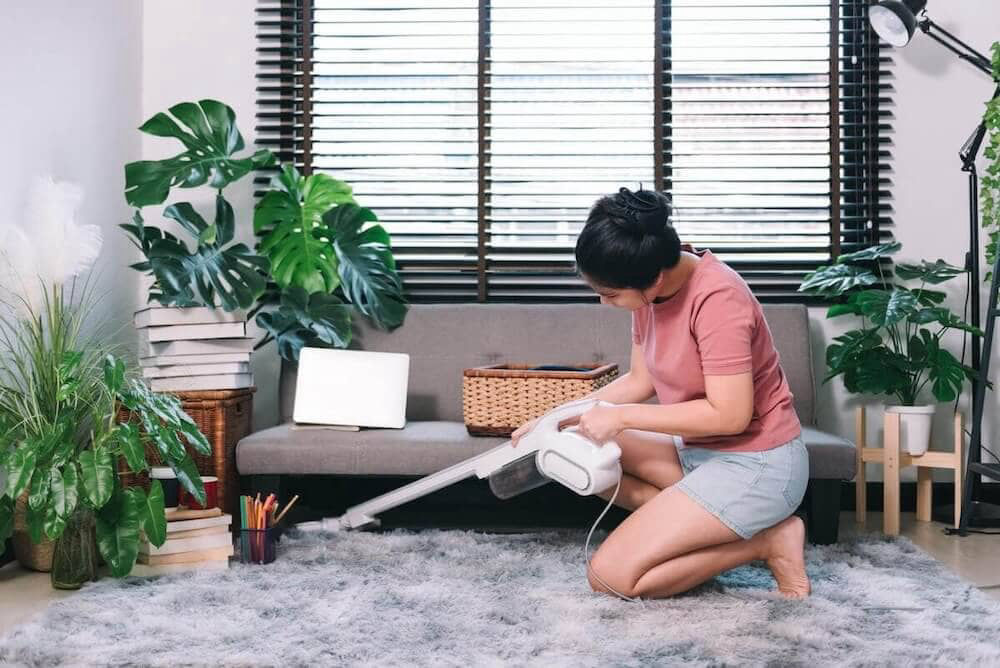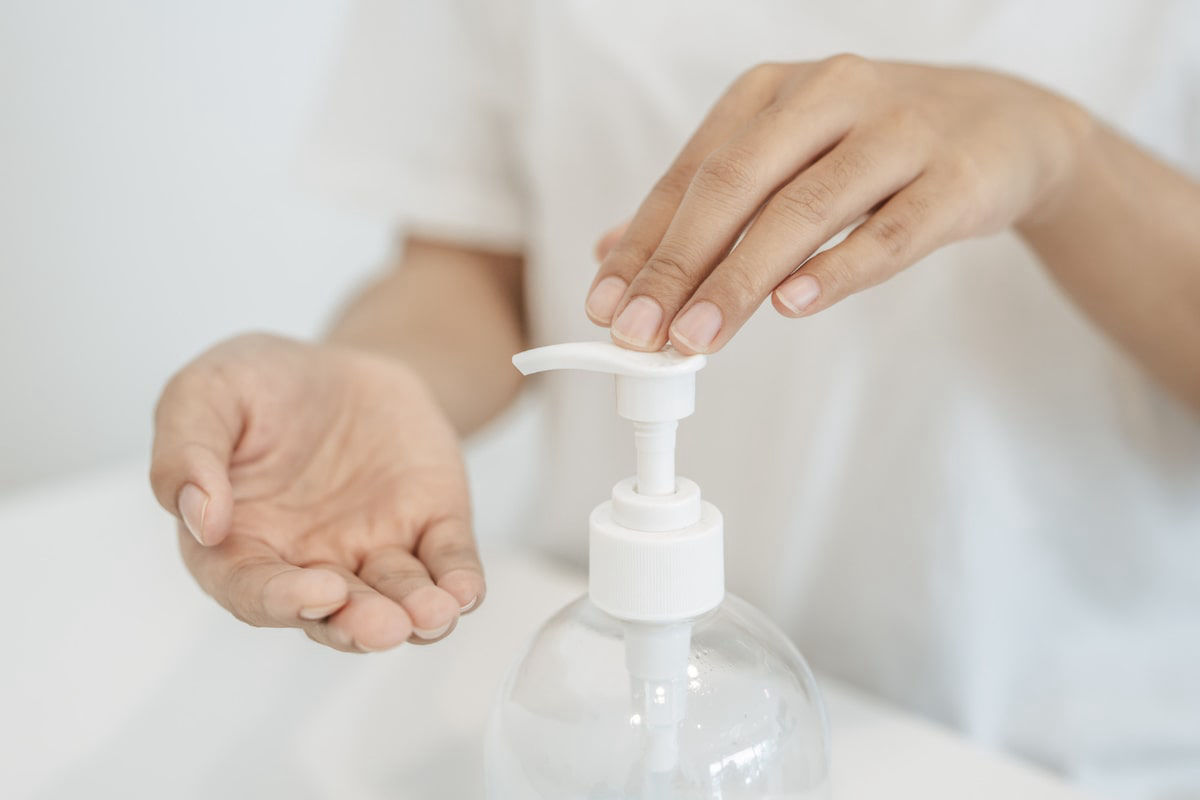
Your house is your home, and home is where love is. A healthy environment where you and all those you care about can live relaxed, forgetting the burdens of the outside world. After all, don’t we all want a reprieve from the stress of work and study?
To make sure this love thrives in an air of cleanliness and refreshment, a domestic helper swoops in. This is their job and they do it perfectly. Of course, like any other job, there are still important rules for any helper to follow and for you to be cognizant of.

These are called house rules. Still, these house rules are not here bind you and your domestic helper by a leash but, rather, they aim to make you feel right at home! (No pun intended.)
How many rules are there? Quite a few – but this article is going to chronicle the top five you need to know. And what are they? Well, all you need to do to find out is read on about the five essential house rules for a domestic helper.
Or to be precise, five tips to keep you and your domestic helper happy (and this is definitely necessary, since a happy helper means a happy home!).
1. A Clean Helper Is The True Domestic Helper.
They say cleanliness is the first step to happiness. Maybe that is why the majority of house rules are geared around it. From throwing out the trash to dish-cleaning shifts and children clearing up their rooms, there is no stone left unturned.

In the end, it is hygiene like this that protects the household from serious illnesses. While domestic helpers are there to help with most of those, depending on your contract, they still deserve respectful treatment, and to do so, you must maintain similar hygiene rules to maintain protection. To ensure this protection, here are some essential house rules to know:
- Wash hands both before eating and after eating, and also before and after going to the toilet. If there is a baby in the house, wash your hands before coming close to the little one.
- Take a proper bath at least once every day. Switch that to twice a day during summertime, but don't waste too much water.
- Brush your teeth twice a day, and this is a rule often strictly monitored in households.
- Change undergarments daily and have them washed properly.
- Personal towels are not to be shared and must be changed at least once a week.
- No sharing of other people’s food and utensils.
- In the account of coughing or any transmittable sickness, keep away and wear proper masks to avoid infection. This is most assuredly more significant given the current COVID situation.
- No smoking. Period. Double this if kids are around, as they might pick up the bad habit early on in their youths.
Since your domestic helper is now part of the family, these hygiene rules are to be followed by them. This will be easier for them if you tend to follow them consistently as well.
If you forget to keep in mind one of these, then don’t worry. After all, it is a domestic helper's job to ensure their fulfilment to… well, the fullest.
2. A Domestic Helper Shows Loyalty To The House
Honesty is the best choice! This policy is a necessary addition to any household, especially when you consider needing to build trust between employees and employers. Moreover, this is a relatively silent house rule, but universally understood and required. For a domestic helper, it is equally if not more important.
After all, the best thing about family is that you can be open to them, share with them. There is no room for any white lies, at least when the said family has to function as a family. It’s doubly true for a domestic helper.

When one enters this line of work, a level of mutual trust needs to be maintained. A standard, if you will. The family would have to entrust their homes to the domestic helper. At times, even their most precious valuables; that is, their children.
A lack of honesty would never be viable within this equation!
But what room does the domestic helper have then in making mistakes? Here’s what the boundaries tend to be in general terms:
- If they’ve made a mistake, they should be (allowed to and willing to) be open about it.
- If they break something, they need to speak up.
- If something happens, they must be factual, truthful, and avoid exaggeration so there is no misunderstanding.
- If they know or are told something deeply personal about the family, they must keep it to themselves. They shouldn’t share with anyone, not even their closest friends and family. They must maintain confidentiality within the walls of the house.
- And the most special house rule of all; be polite.
- They should always greet the house owners.
- They should be a party to no raised voices, verbal abuse, or physical abuse to any member of the household.
- They must be kind to children and not punish them unless instructed to. And even then, they need to inform the parents beforehand in case of any misbehaviour.
- They should be respectful and kind to all elders and visiting guests.
Lastly, though separate, the concept of respect is also important, and this goes both ways. Give your domestic helper respect, and you will get respect in return.
3. A Domestic Helper Follows The House Rules That Keep The House Secure.
After a family, the next best thing is having four walls and a roof over your head. Why? It helps protect your privacy and gives you a sense of security that nothing else does - even more when the walls are your very own.
A domestic helper must realize the importance of all house rules revolving around this at all times. This is especially true when the family trusts it to their care whenever they leave.
Domestic helpers should be well-instructed over which door to close, which room to lock, and which to not. They should also know what areas are off-limits and what is not, what lights to switch on, and what to switch off.

If expecting unannounced guests, the domestic helper must have a general idea of what to say to them and whether to let them in. After all, some guests can be unannounced and unwanted. Family life, right?
Lastly, if children are left in their care, she should know their meal and mealtimes, bedtimes, and where their essentials are placed: medicines, clothes, favourite toys.
Children tend to get carried away with house rules in the absence of authority. Some even try to “manipulate” the domestic helper responsible for them. It’s best to have them prepared to fend for themselves in such scenarios.
4. Setting Up Working Hours For Your Domestic Helper.
Typical house rules specifying working hours for domestic helpers revolve around seven in the morning to about nine or ten in the evening. Minimum coverage should be at least twelve hours with a day off. That's a lot of work!
Typically, domestic helpers utilize one day taken from the weekends as a day off, but you should maintain a level of understanding with her.
What kind of understanding?
The flexible kind. It’s best to clarify that they should be flexible enough in their schedule depending on the situation. However, if they are expected to be flexible, the same applies to you, the employer.
Give them adequate breaks, usually between one and two in the afternoon. Care for their needs, even if they revolve around their personal life. If the situation arises, your domestic helper has a right to ask for leave.
5. Understanding That Your Domestic Helper Is A Person Just Like You.
And so, like all people, your domestic helper has a life of their own. Dreams and goals, likes and dislikes, friends and family, loved ones, spouse, or even children. Proof that they are, indeed, a person.
So do treat them like a person.
It is up to you whether you give them the Wi-Fi password. However, feel free to discuss mobile usage, how long they can converse with their associates, or the frequency of their conversations if you’d like to limit their usage of the internet and related aspects.
Most especially, do set up clear boundaries about whether she can invite their friends or family over to your home or not. Once again, allowing this and setting the boundaries is totally up to you.
As long as you consider these when deciding your house rules for a domestic helper.
House Rules For Emergency Situations.
The last thing anyone ever needs their domestic helper to be panicked, with uncontrollable emotions. In such situations, instruct them on all the necessary actions they are authorized to take to ensure a speedy and positive solution.
Feel free to instruct them on whom she can contact and prepare a full contact list. In cases of emergency, you should be the first contact, followed by other important numbers, like the police, a helpline, etc.
A Final Word
If you want your household and your domestic helper to be happy and efficient, the above house rules will give you the exact recipe.
“But aren’t these rules common sense?” You might ask.
Truth be told, yes, they are. However, common sense is not too common and for a good, justifiable reason, too: the lack of awareness within people. Still, with this article, we’ve outlined a structure for you and we’re sure you’ll keep it in mind when dealing with related issues.
We hope that this article has helped you understand this niche better than yesterday. Be sure to have a detailed discussion about these house rules when interviewing a domestic helper. Communication goes a long way.



